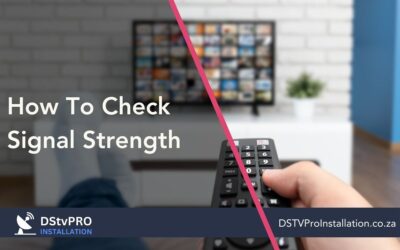Introduction
Brief Overview of UPS Necessity for TV and Routers
In today’s digitally connected world, the continuity of entertainment and communication is more than a luxury; it’s a necessity. Uninterruptible Power Supplies (UPS) play a pivotal role in this context, especially for devices like TVs and routers. Why? Because a UPS not only ensures your favorite show isn’t cut off during a power outage but also keeps your internet connection stable, which is crucial in both work and leisure scenarios.
Understanding the Role of UPS and Inverters
A UPS is more than a battery. It’s a shield against power surges, fluctuations, and interruptions. Coupled with an inverter, a UPS converts stored energy into usable AC power, essential for household electronics. In this guide, we’ll unravel the complexities of UPS and inverters, laying out how they can be best utilized to protect and power your TV and router.
Understanding UPS and Inverters
Inverters and UPS Basics
What’s the deal with UPS and inverters? Essentially, UPS systems are your go-to solution for immediate power backup. They kick in almost instantaneously during a power outage, ensuring no interruption. Inverters, on the other hand, are the heart of a UPS, converting DC power from batteries to AC power for your devices. This section will guide you through the basics, helping you understand the core functions of these devices.
Types of UPS Systems
Standby, Line-Interactive, and Online UPS – these are the three primary types you’ll encounter. Each type offers different levels of protection and functionality. For instance, a Standby UPS is ideal for less critical electronics, while an Online UPS offers the highest level of protection, perfect for sensitive devices like high-definition TVs and sophisticated routers.
| UPS Type | Best For | Protection Level |
|---|---|---|
| Standby | Basic Devices | Low |
| Line-Interactive | Moderate Use Devices | Medium |
| Online | High-End Electronics | High |
The Role of Inverters in Power Backup
The inverter’s role in a UPS is crucial. It’s responsible for the actual conversion of power, ensuring that the output is safe and stable for your electronics. Different types of inverters offer varying efficiency levels and power qualities. We’ll explore why understanding your inverter type is key in selecting the right UPS.
Choosing the Right UPS Size
Factors Affecting UPS Size Selection
Selecting the right size of UPS is crucial for efficient and effective power backup. Factors like the power consumption of your devices, the duration of backup required, and the type of load (resistive or inductive) play a significant role. This section will guide you through understanding these factors, helping you make an informed decision.
Calculating Power Requirements for TV and Router
Calculating the power requirement is not as daunting as it seems. First, check the power ratings (usually in watts) on your TV and router. Add a buffer of about 20-25% to this total to account for inefficiencies. This calculation will give you a rough idea of the UPS size you need. For example, if your TV and router together consume 150 watts, aim for a UPS that offers at least 187.5 watts (150 watts + 25%).
Example Calculation:
| Device | Power Consumption (Watts) | Total |
|---|---|---|
| TV | 100 | |
| Router | 50 | |
| Total | 150 Watts | |
| Buffer (25%) | 37.5 Watts | |
| Required UPS Size | 187.5 Watts |
Specific UPS Recommendations
Best UPS Models for TV and Router
When it comes to selecting a UPS for your TV and router, you want reliability, efficiency, and sufficient power backup. Here are some of the top picks that strike the perfect balance:
- CyberPower CP1500AVRLCD: Ideal for high-end TVs and routers, offering line-interactive topology, surge protection, and a multifunction LCD panel.
- APC Back-UPS Pro 1500VA: Known for its reliability, this model offers ample backup time and is great for both TVs and routers.
- Tripp Lite 1300VA Smart UPS: A smart choice for those who need a balance of performance and budget, with reliable battery backup and surge protection.
| Model | Type | Key Feature |
|---|---|---|
| CyberPower CP1500AVRLCD | Line-Interactive | Multifunction LCD Panel |
| APC Back-UPS Pro 1500VA | Line-Interactive | High Reliability |
| Tripp Lite 1300VA | Line-Interactive | Budget-Friendly |
Budget-Friendly UPS Options
Not everyone needs a high-end UPS. For those on a budget, models like the AmazonBasics Standby UPS 600VA or the APC Back-UPS 425VA provide adequate protection for lower power consumption devices like routers and small TVs.
UPS for TV
Can a UPS Power a TV?
Absolutely! A UPS can power a TV, but the key is to choose one with sufficient capacity. A general rule of thumb is to select a UPS with a power output (in watts) that exceeds the power consumption of your TV by at least 25%. This ensures that the UPS can handle the load and provides a buffer for power surges.
Understanding the Power Needs of a TV
Modern TVs vary in their power consumption based on size, technology (LED, OLED, etc.), and features. A typical 40-inch LED TV, for instance, might consume around 80 watts, whereas larger or feature-rich models could require more. Always check the manufacturer’s specifications for accurate figures.
| TV Size | Technology | Estimated Power Consumption |
|---|---|---|
| 40-inch | LED | 80 Watts |
| 55-inch | OLED | 120 Watts |
| 65-inch | 4K UHD | 150 Watts |
UPS for Routers
Keeping Your Router On During Power Outages
A continuous internet connection is essential, especially in today’s remote working era. A UPS for your router ensures that you stay online, even when the power goes out. For most home routers, a small to medium-sized UPS is more than sufficient.
Router Power Requirements and UPS Compatibility
Routers generally consume less power compared to other electronics. A typical home router might use around 10 to 20 watts. When selecting a UPS, ensure it can handle this load with ease. A UPS with a capacity of around 50 to 100 watts would be ample for most home routers.
Advanced UPS Features and Considerations
UPS Battery Capacity and Type
The battery is the heart of a UPS. Capacity, expressed in watt-hours, determines how long your UPS can power your devices. Types of batteries, like lead-acid or lithium-ion, also impact the performance, lifespan, and size of the UPS.
Inverter Types and Their Importance
Inverters in UPS systems come in different types, such as pure sine wave and modified sine wave. Pure sine wave inverters are generally better for sensitive electronics and mimic the power supply from the grid more closely.
Load Shedding and UPS
In regions where load shedding is common, a UPS becomes a critical component. Opt for a UPS with a longer battery life and faster charging capabilities to ensure your TV and router are always operational.
Buying Guide
What to Look for When Buying a UPS
When purchasing a UPS for your TV and router, several factors should be taken into account:
- Power Capacity: Ensure the UPS can handle the combined wattage of your TV and router.
- Battery Life: Look for a UPS with a battery life that suits your needs, especially during longer power outages.
- Output Waveform: A pure sine wave UPS is preferable for sensitive electronics like TVs and routers.
- Size and Portability: Depending on your space, you might prefer a more compact and portable UPS.
- Additional Features: Consider UPS models with features like surge protection, USB charging ports, and user-friendly LCD displays.
Where to Buy Quality UPS
Quality UPS systems can be found in various places:
- Online Retailers: Websites like Amazon, Best Buy, and Newegg offer a wide range of UPS models with customer reviews.
- Electronics Stores: Local electronics stores often have knowledgeable staff who can assist in choosing the right UPS.
- Specialized Power Solution Providers: Companies specializing in power backup solutions often offer higher-end, more reliable UPS systems.
Conclusion
Summary of Key Points
This guide has navigated through the essentials of choosing the right UPS for TVs and routers. From understanding the basics of UPS and inverters, selecting the appropriate size, to reviewing specific models and advanced features, we’ve covered the key aspects to consider for uninterrupted power and connectivity.
Final Recommendations for UPS Size for TV and Router
For most home setups, a UPS with a power capacity of 750 to 1500VA is typically sufficient to power both a TV and a router. However, always calculate your specific power needs and consider future expansions when selecting a UPS.
Tables and Helpful Data
Comparison Table of Recommended UPS Models
This table provides a quick comparison of the top UPS models suitable for TVs and routers:
| Model | Capacity (VA/Watts) | Type | Key Features |
|---|---|---|---|
| CyberPower CP1500AVRLCD | 1500VA / 900W | Line-Interactive | Multifunction LCD Panel, Surge Protection |
| APC Back-UPS Pro 1500VA | 1500VA / 865W | Line-Interactive | High Reliability, Battery Backup |
| Tripp Lite 1300VA | 1300VA / 720W | Line-Interactive | Budget-Friendly, Reliable Backup |
| AmazonBasics Standby UPS 600VA | 600VA / 360W | Standby | Compact, Affordable |
| APC Back-UPS 425VA | 425VA / 255W | Standby | Basic Protection, Small Size |
Table of Power Requirements for Common TVs and Routers
This table lists the approximate power requirements of common TV sizes and routers, aiding in calculating the total power needed:
| Device Type | Size/Model | Power Consumption (Watts) |
|---|---|---|
| TV (LED) | 40-inch | 80 Watts |
| TV (OLED) | 55-inch | 120 Watts |
| TV (4K UHD) | 65-inch | 150 Watts |
| Router | Standard Home Router | 10-20 Watts |

With over a decade of experience in satellite installation, Mthunzi is a seasoned Satellite Installation Technician at DStv Pro Installation. Recognized for his meticulous attention to detail and expert knowledge in signal troubleshooting, Mthunzi has successfully completed over 1,000 installations, earning a reputation for reliability and excellence. Certified and constantly updated on the latest technology, he’s the go-to professional you can trust for a seamless DStv experience.




